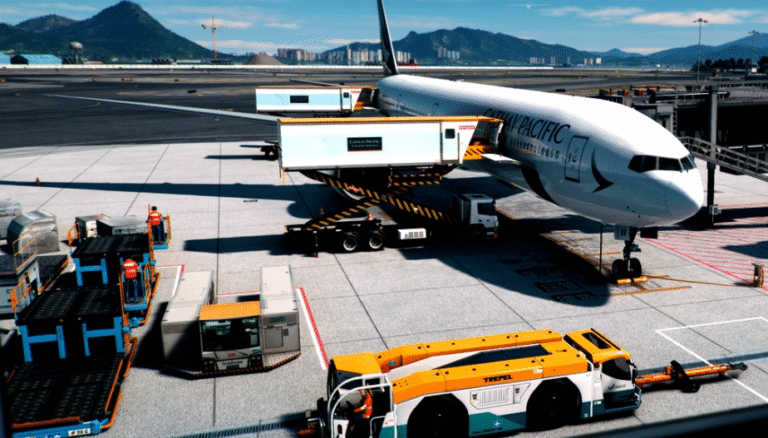Are Business Flights to India Really Cost-Effective for Frequent Flyers?

Business travel to India has become increasingly common among global executives, entrepreneurs, and investors. With India’s economic rise, frequent flyers often find themselves booking business flights to attend meetings, conferences, or to explore new ventures. However, one question that continues to surface is whether these flights are truly cost-effective for those who travel often. The answer is not as straightforward as a simple yes or no—it depends on multiple factors ranging from ticket pricing and airline loyalty programs to the value gained from business opportunities in India. This blog dives deep into the topic, examining whether business flights to India really offer value for frequent flyers.
Why Do Frequent Flyers Prefer Business Flights Over Economy?
Before evaluating cost-effectiveness, it’s important to understand why many executives choose business class flights in the first place. The preference often goes beyond luxury—it’s about productivity, convenience, and efficiency.
- Time Equals Money – Business executives often travel with tight schedules. Business class reduces fatigue, enabling them to work immediately after landing.
- Comfort and Rest – Flatbeds, spacious cabins, and premium services ensure proper rest before high-stakes meetings.
- Work-Friendly Environment – In-flight Wi-Fi, power outlets, and quiet surroundings allow executives to remain productive.
- Prestige and Perception – For many, flying business class is also a reflection of their professional image, especially when meeting clients.
How Much Do Business Flights to India Typically Cost?
The cost of business flights is often the biggest consideration for frequent flyers. Prices can vary significantly depending on the route, airline, and time of booking.
- Route-Based Pricing – Direct flights from major cities like London, New York, and Dubai to Delhi or Mumbai are generally more expensive than connecting flights.
- Airline Differences – Premium carriers such as Emirates, Singapore Airlines, or Lufthansa usually charge higher fares compared to regional airlines.
- Seasonal Variation – Prices peak during India’s festive and business seasons (October–March) and dip slightly during the off-season.
- Advance vs. Last-Minute Booking – Booking well in advance can lead to significant savings, while urgent trips often demand premium pricing.
See also: Best Hotels in Bangkok for a Comfortable Stay
Do Airline Loyalty Programs Make Business Flights More Affordable?
Loyalty programs are one of the most effective ways frequent flyers reduce costs on business travel. For those who travel often to India, accumulating miles and points can make a noticeable difference.
- Frequent Flyer Miles – Earned miles can be redeemed for upgrades, discounted tickets, or even free flights.
- Elite Status Perks – Regular travelers gain benefits like priority boarding, lounge access, and complimentary upgrades.
- Corporate Travel Programs – Many companies partner with airlines to receive special business class deals for employees.
- Credit Card Rewards – Business travelers often combine airline cards with loyalty programs for double benefits.
What Role Does Time Savings Play in Cost-Effectiveness?
For frequent flyers, time saved is often just as valuable—if not more so—than money saved. Business flights to India can justify their cost because of the efficiency they provide.
- Faster Check-Ins and Security – Business class travelers typically enjoy priority boarding and express security clearance.
- Direct Routes – Non-stop flights to India save hours compared to connecting flights, allowing executives to maximize working hours.
- Reduced Jet Lag – Comfortable seating and better rest help minimize downtime upon arrival.
- Increased Productivity – Time spent in-flight can be used for work, presentations, or preparing for upcoming meetings.
How Do Business Opportunities in India Justify Travel Costs?
The ultimate measure of cost-effectiveness lies in whether business flights lead to significant returns on investment. For many global executives, traveling to India often pays for itself in business opportunities.
- Expanding Market Access – India’s growing middle-class population provides enormous potential for new products and services.
- Partnerships and Collaborations – Face-to-face interactions help build trust and long-term business relationships.
- Industry-Specific Growth – Sectors like IT, pharmaceuticals, and manufacturing offer lucrative deals for foreign investors.
- Trade Shows and Conferences – Attending Indian business events can open doors to new clients and suppliers.
Are Corporate Travel Packages a Smarter Option?
Companies often negotiate bulk deals with airlines and hotels to reduce the cost of frequent business travel. For regular flyers, these packages can provide considerable savings.
- Discounted Airfare – Corporations secure lower fares by committing to regular bookings.
- Hotel Partnerships – Bundled packages often include discounted luxury accommodations near business hubs.
- Flexible Rescheduling – Corporate packages usually allow last-minute changes at no extra cost.
- Integrated Travel Management – Simplified booking systems make planning frequent trips easier and more cost-efficient.
How Do Indian Airlines Contribute to Cost-Effective Business Travel?
India’s own airlines play a major role in making business flights more affordable for frequent travelers. With increased competition, pricing has become more competitive.
- Domestic Connectivity – Airlines like Vistara and Air India offer seamless domestic connections for international flyers.
- Competitive Pricing – Indian carriers often provide lower business class fares compared to international rivals.
- Partnerships with Global Carriers – Codeshare agreements help reduce overall travel costs and provide smoother itineraries.
- Emerging Budget Business Options – Some carriers now offer premium economy options as a middle ground.
Do Frequent Flyers Benefit More from Business Class Upgrades?
Not all frequent flyers purchase full-price business class tickets—many rely on strategic upgrades. These options make premium travel far more cost-effective.
- Mileage Upgrades – Travelers can use points to upgrade from economy to business.
- Bid for Upgrade Programs – Some airlines allow passengers to bid for a business class seat at discounted rates.
- Off-Peak Upgrade Offers – Airlines often release cheaper upgrades during low-demand seasons.
- Corporate Upgrade Vouchers – Employers may provide vouchers that significantly reduce upgrade costs.
Is Business Class Always Necessary for Frequent Flyers?
While business class offers undeniable benefits, it isn’t always the most cost-effective option for every flyer. Many executives weigh the need for business class based on trip duration, purpose, and frequency.
- Short-Haul Flights – For trips under 4–5 hours, economy or premium economy may be sufficient.
- Virtual Alternatives – Some meetings can be handled online, reducing the frequency of business flights.
- Hybrid Travel Policies – Many companies encourage mixing business and economy depending on the importance of the trip.
- Cost-Benefit Analysis – Frequent flyers often evaluate whether the additional productivity gained from business class justifies the higher cost.
What Are the Hidden Costs of Business Flights to India?
Beyond the ticket price, frequent flyers must also consider hidden costs that influence whether business flights are truly cost-effective.
- Visa and Travel Insurance – Repeated trips require recurring costs for documentation and coverage.
- Airport Transfers and Local Commute – Chauffeured services and cabs add up quickly in business travel budgets.
- Accommodation Costs – Luxury hotels in business hubs like Mumbai or Delhi often charge premium rates.
- Opportunity Costs – Time spent traveling could be used for other productive tasks, especially when trips are excessive.
What Future Trends Will Affect the Cost-Effectiveness of Business Flights?
The future of business flights to India is evolving. Emerging trends may make travel more cost-effective—or, in some cases, more expensive.
- Rise of Premium Economy – This growing option offers a middle ground between comfort and affordability.
- Sustainable Travel Initiatives – Airlines investing in eco-friendly operations may pass on costs to passengers.
- Increased Global Competition – More airlines flying to India could drive down prices.
- Hybrid Work Models – While virtual meetings will remain, certain deals and partnerships will continue to demand in-person visits.
Final Thoughts
So, are business flights to India really cost-effective for frequent flyers? The answer lies in how you define “cost-effective.” For executives who value time, productivity, and opportunities gained from face-to-face interactions in India, business class flights often justify their higher price tag. Loyalty programs, corporate deals, and strategic upgrades can make them even more affordable. However, for those who travel excessively without a clear return on investment, the costs may outweigh the benefits.
Ultimately, frequent flyers must evaluate each trip not just in terms of airfare, but also in the value it brings to their professional goals and business growth.



